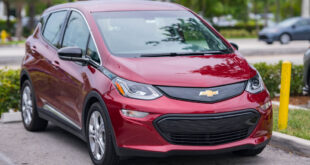Electric Car Warranty Coverage: What You Need to Know As electric vehicles (EVs) gain popularity, understanding their warranty coverage becomes essential for prospective buyers and owners. This article provides a comprehensive guide to electric car warranty coverage, ensuring you make informed decisions about your EV purchase and maintenance.
What is Electric Car Warranty Coverage?
Electric car warranty coverage protects buyers from defects in manufacturing and workmanship during a specified period. This warranty typically includes the following components:
- Battery Warranty
Covers the EV battery, a crucial and expensive component of electric cars, against performance degradation or defects. - Powertrain Warranty
Includes electric motors, drive units, and associated systems. - Bumper-to-Bumper Warranty
Provides coverage for most non-wear-and-tear components like electronics, HVAC, and chassis parts. - Corrosion Warranty
Covers rust damage to the vehicle’s body. - Roadside Assistance
Many manufacturers include this as part of the warranty package, offering help in case of breakdowns or emergencies.
Standard Warranty Periods for Electric Cars
The warranty periods for electric vehicles often differ from traditional gas-powered cars due to the importance of battery coverage:
- Battery Warranty: Typically lasts 8 years or 100,000 miles, whichever comes first.
- Comprehensive Warranty: Covers 3-5 years or up to 60,000 miles.
- Powertrain Warranty: Varies between 5-10 years or up to 100,000 miles.
What Does Electric Car Warranty Cover?
- Battery Performance
Guarantees a minimum percentage of battery capacity (e.g., 70%) during the warranty period. - Electrical Components
Includes onboard chargers, wiring, and inverters. - Software Updates
Ensures functionality of infotainment and operational software. - Manufacturing Defects
Covers defective materials or assembly issues. - Unexpected Failures
Protects against sudden malfunction of covered components.
What is Not Covered in Electric Car Warranties?
Electric car warranties often exclude the following:
- Regular maintenance (e.g., tire rotation, brake pads).
- Damage caused by accidents, misuse, or natural disasters.
- Wear-and-tear components like tires and wipers.
- Unauthorized modifications or repairs.
How to Make the Most of Your Electric Car Warranty
- Understand Coverage Terms
Read the warranty manual thoroughly to know what’s included. - Regular Maintenance
Adhere to the manufacturer’s maintenance schedule to avoid voiding your warranty. - Document Everything
Keep detailed records of repairs, maintenance, and inspections. - Address Issues Promptly
Report any malfunctions or concerns to the dealership immediately.
Top Electric Car Manufacturers and Their Warranty Offers
- Tesla: 8 years/120,000 miles for battery and drive unit (Model S and X).
- Nissan: 8 years/100,000 miles battery warranty for the Leaf.
- Chevrolet: 8 years/100,000 miles battery warranty for the Bolt EV.
- Hyundai/Kia: Industry-leading 10-year powertrain warranties, including EV components.
10 Tips for Maximizing Your Electric Car Warranty
- Always read the fine print of the warranty.
- Follow the manufacturer’s recommended maintenance schedule.
- Use authorized service centers for repairs.
- Avoid aftermarket modifications that may void coverage.
- Keep detailed maintenance and repair records.
- Utilize roadside assistance benefits when necessary.
- Address warranty-covered issues promptly.
- Protect your EV from extreme weather to preserve its components.
- Learn about extended warranty options for added protection.
- Ask about software update coverage during warranty service.
10 Frequently Asked Questions (FAQs)
- What happens if my battery degrades beyond the guaranteed level?
The manufacturer will repair or replace the battery under warranty. - Are software updates covered in EV warranties?
Yes, most manufacturers include essential software updates. - Can I transfer the warranty to a new owner if I sell my EV?
Many EV warranties are transferable; check your manual for specifics. - What voids an EV warranty?
Unauthorized repairs, modifications, or failure to follow maintenance guidelines. - Is roadside assistance included in all EV warranties?
Not always, but many manufacturers include it as a standard feature. - Are charging-related damages covered under warranty?
If caused by a defect in the EV’s charging system, yes. External issues are typically not covered. - Does warranty coverage differ by model?
Yes, different models from the same manufacturer may have varied coverage. - Are hybrid car warranties the same as EV warranties?
Hybrid warranties often differ due to the inclusion of both electric and combustion components. - How long does a warranty repair take?
This depends on the issue and the availability of parts. - Can I purchase an extended warranty for my EV?
Yes, many manufacturers or third-party providers offer extended warranties.
Conclusion
Electric car warranty coverage is a critical factor for any EV buyer. It protects against costly repairs and ensures peace of mind as you transition to sustainable driving. Understanding what is covered, what is excluded, and how to maximize the benefits can save you money and stress over the lifetime of your vehicle.
By choosing a reliable manufacturer and adhering to best practices, you can enjoy your electric car with confidence, knowing that your investment is well-protected. Warranty coverage is not just a safety net—it’s a commitment to the quality and reliability of your electric vehicle.
 oto car insurance used car repair
oto car insurance used car repair
